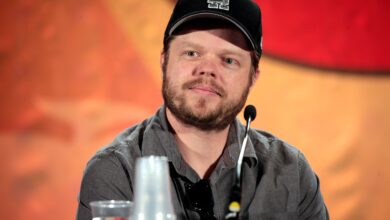Rajinikanth Biography – an Indian actor and the King of Style
Shivaji Rao Gaikwad, known professionally as Rajinikanth, is an Indian actor who works mainly in Tamil cinema. In a career spanning over five decades, he has done more than 160 films that includes films in Tamil, Hindi, Telugu, Kannada, Bengali, and Malayalam.
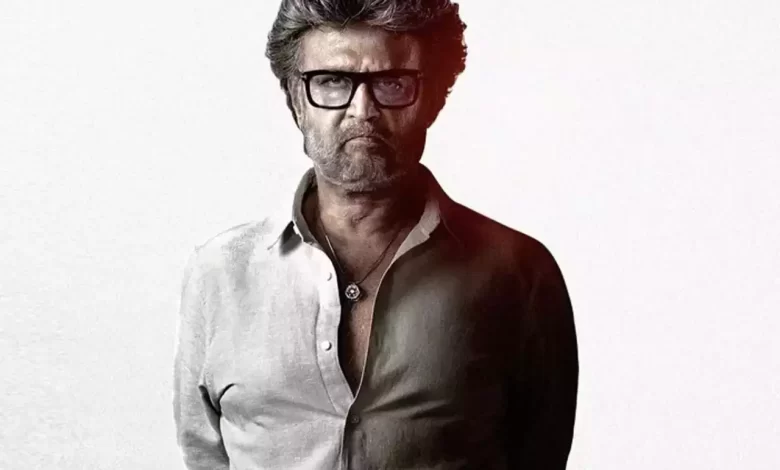
| Quick Info→ | |
|---|---|
| Real Name: | Shivaji Rao Gaikwad |
| Profession: | Indian Actor |
| Birthplace: | Bangalore (present-day Bengaluru), Mysore State |
| Spouse: | Latha Rajinikanth |
| Age: | 72 |
Shivaji Rao Gaikwad (born 12 December 1950), known professionally as Rajinikanth is an Indian actor who works mainly in Tamil cinema. In a career spanning over five decades, he has done more than 160 films that include films in Tamil, Hindi, Telugu, Kannada, Bengali, and Malayalam. He is widely regarded as one of the most successful and popular actors in the history of Indian cinema. Known for his uniquely styled lines and idiosyncrasies in films, he has a huge fan base throughout India and a cult following. The Government of India honored him with Padma Bhushan in 2000, Padma Vibhushan in 2016, India’s third and second highest civilian honors, and the highest award in the field of cinema Dadasaheb Phalke Award in 2019 for his contributions to Indian cinema.
Following his debut in K. Balachander’s 1975 Tamil drama Apoorva Raagangal, Rajinikanth’s acting career commenced with a brief phase of portraying antagonistic characters in Tamil films. His major positive role as a scorned lover in S. P. Muthuraman’s Bhuvana Oru Kelvi Kuri (1977), 1978’s Mullum Malarum and Aval Appadithan received him critical acclaim; the former earned him a Tamil Nadu State Film Award Special Prize for Best Actor. By the end of the decade, he had worked in all South Indian film industries and established a career in Tamil cinema. He then played dual roles in the action thriller Billa (1980), a remake of the Hindi film Don (1978). It was his biggest commercial success to that point, earned him stardom, and gave him the action hero image. He starred in a triple role in Moondru Mugam (1982), which earned him a special prize at the Tamil Nadu State Film Awards ceremony. The following year, he made his Bollywood debut with T. Rama Rao‘s top-grossing Andhaa Kaanoon (1983). Nallavanukku Nallavan (1984) won that year’s Filmfare Award for Best Tamil Actor. In the latter half of the 1980s, he starred in several successful films in Tamil and Hindi, including Padikkadavan (1985), Mr. Bharath (1986), Bhagwaan Dada (1986), Velaikaran (1987), Dharmathin Thalaivan (1988) and Hum (1991).
In 1991, Mani Ratnam‘s Tamil crime film Thalapathi earned him major critical acclaim for his performance. He collaborated with Suresh Krishna on many films including Annaamalai (1992) and Baashha (1995); the latter was the biggest commercial success in his career yet as well as the highest-grossing film in Tamil for many years. His other success includes P. Vasu’s Mannan (1992), Uzhaippali (1993) and K. S. Ravikumar’s Muthu (1995) and Padayappa (1999); the latter of which went on to become his and Tamil cinema‘s highest-grossing movie, exceeding Baashha.
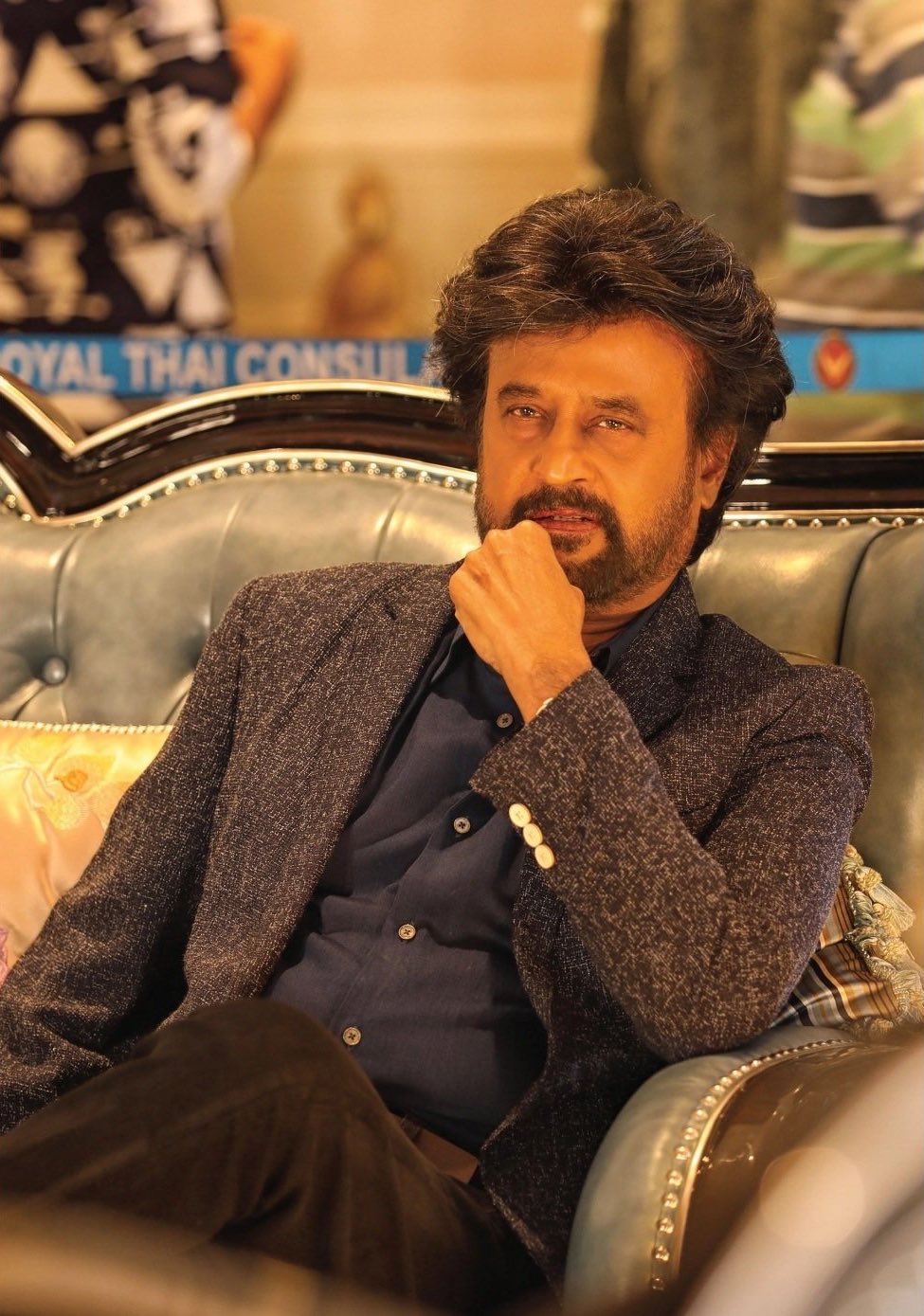
After a few years of hiatus, he returned to acting with the comedy horror film Chandramukhi (2005); it went on to become again the highest-grossing Tamil film. His next, S. Shankar’s Sivaji (2007) was the third Indian film to enter the 100 Crore Club. He played dual roles, as a scientist and an andro-humanoid robot, in the science fiction film Enthiran (2010) and its sequel 2.0 (2018), both being India’s most expensive productions at the time of their release and among the highest-grossing Indian films of all time.
He has won many awards, including a National Film Award, seven Tamil Nadu State Film Awards, a Nandi Award, and a Filmfare Award. Rajinikanth was also named one of the most influential persons in South Asia by Asiaweek. He was also named by Forbes India as the most influential Indian of the year 2010.
|
Rajinikanth Biography
|
|
|---|---|
| Born |
Shivaji Rao Gaikwad
12 December 1950 Bangalore (present-day Bengaluru), Mysore State
|
| Other names |
|
| Alma mater | Adyar Film Institute |
| Occupation | Actor |
| Years active | 1975–present |
| Works | Full List |
| Spouse |
Latha Rajinikanth (m. 1981)
|
| Children |
|
| Relatives | See Rajinikanth family |
| Awards | Dadasaheb Phalke Award (2019) Padma Vibhushan (2016) NTR National Award (2016) Padma Bhushan (2000) Kalaimamani (1984) (See full list) |
Table of Contents
Early life and background (Rajinikanth Biography)
Rajinikanth was born Shivaji Rao Gaikwad on 12 December 1950 in a Marathi Hindu family in Bangalore, Mysore State (present-day Karnataka). He was named after the Maratha Empire king Shivaji Maharaj, and was brought up speaking Marathi at home and Kannada outside. His mother was a homemaker, and his father Ramoji Rao Gaekwad was a police constable. His ancestors hailed from Mavadi Kadepathar, Pune, Maharashtra. He is the youngest of four siblings in a family consisting of two elder brothers (Satyanarayana Rao and Nageshwara Rao) and a sister (Aswath Balubhai). After his father’s retirement from work in 1956, the family moved to the suburb of Hanumantha Nagar in Bangalore and built a house there. He lost his mother at the age of nine.
Rajinikanth had his primary education at the Gavipuram Government Kannada Model Primary School in Bangalore. As a child, he was “studious and mischievous” with a great interest in cricket, football, and basketball. During this time, his brother enrolled him at the Ramakrishna Math, a Hindu monastery set up by the Ramakrishna Mission. In math, he was taught Vedas, tradition, and history, which eventually instilled a sense of spirituality in him. In addition to spiritual lessons, he also began acting in plays at the math. His aspiration towards theatre grew at math and was once given an opportunity to enact the role of Ekalavya‘s friend from the Hindu epic Mahabharata. His performance in the play received praise from the Kannada poet D. R. Bendre. After sixth grade, Rajinikanth was enrolled at the Acharya Pathasala Public School and studied there till completion of his pre-university course. During his schooling at the Acharya Pathasala, he spent a lot of time acting in plays.
Upon completion of his school education, Rajinikanth performed several jobs including that of a coolie, before getting a job in the Bangalore Transport Service as a bus conductor. He continued to take part in plays after the Kannada playwright Topi Muniappa offered him a chance to act in one of his mythological plays. He decided to take up an acting course at the newly formed Madras Film Institute after coming across an advertisement. Though his family was not fully supportive of his decision to join the institute, his friend and co-worker Raj Bahadur motivated him to join the institute and financially supported him during this phase. During his stay at the institute, he was noticed by the Tamil film director K. Balachander. Balachander provided Rajinikanth with his stage name to avoid confusion with fellow actor Sivaji Ganesan, having taken it from a character’s name in his earlier film Major Chandrakanth. The director advised him to learn to speak Tamil, a recommendation that Rajinikanth quickly followed. Though he can read the language, he cannot write in it.
Acting career (Rajinikanth Biography)
1975–1977: Early career
Rajinikanth began his film career with the Tamil film Apoorva Raagangal (1975), directed by K. Balachander. He was cast in a small role as the ex-husband of the female lead played by Srividya. The film explored relationships between people with wide age differences and was deemed controversial upon release. However, it received critical acclaim and won three National Film Awards including the Award for the Best Tamil Feature at the 23rd National Film Awards in 1976. A review from The Hindu noted that: “Newcomer Rajinikanth is dignified and impressive”. His next release was Puttanna Kanagal’s Kannada anthology film Katha Sangama (1976). Rajinikanth appeared in the last segment of the film; he played the role of a village ruffian who rapes a blind woman in the absence of her husband. Balachander cast him in a pivotal role in Anthuleni Katha (1976), the Telugu remake of his own Tamil film Aval Oru Thodar Kathai (1974). In Moondru Mudichu—the first Tamil film to feature him in a prominent role—he played a character that “blithely row[s] away” when his friend drowns accidentally in the lake only to fulfill his desire to marry the former’s girlfriend.
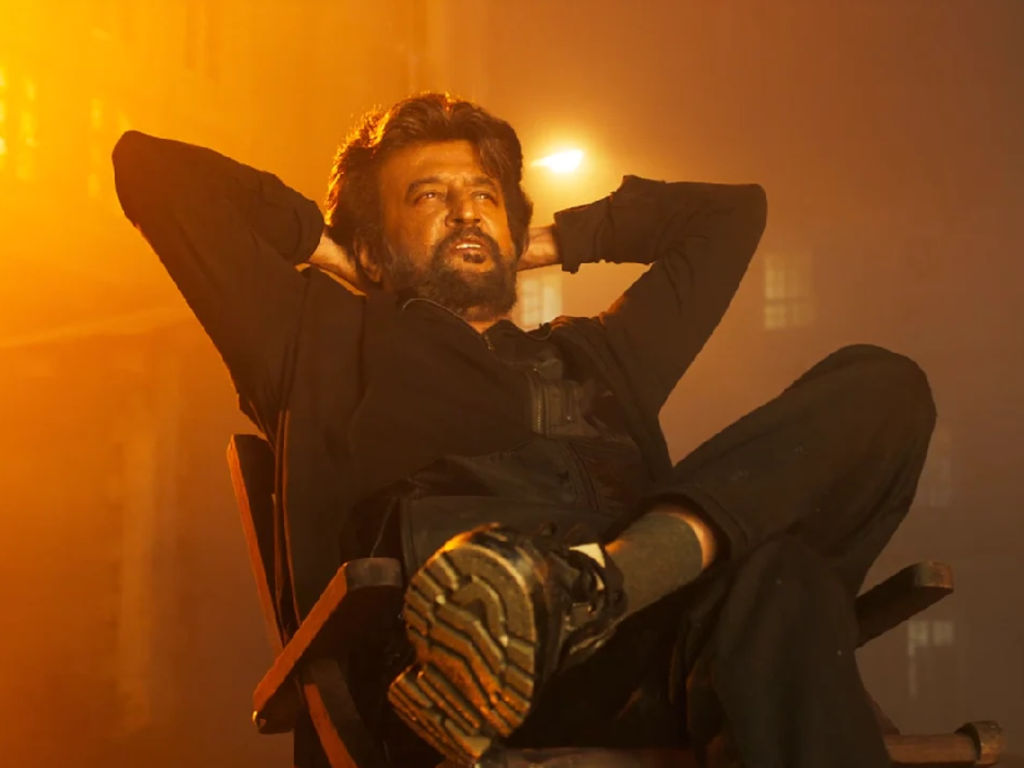
1978–1989: Experimentation and breakthrough
In 1978, Rajinikanth had 20 releases across Tamil, Telugu and Kannada. His first film of the year was P. Madhavan’s Shankar Salim Simon, in which he was among the three leads. Following that, he co-starred alongside Vishnuvardhan in the Kannada film Kiladi Kittu. He played the second lead in Annadammula Savaal, which starred Krishna; Rajinikanth reprised his role from the Kannada original. He then played an important role in the supernatural thriller Aayiram Jenmangal. In Maathu Tappada Maga, he was the main antagonist. Bairavi, directed by M. Bhaskar, was the first Tamil film to cast Rajinikanth as a solo hero. It was for this film that he earned the sobriquet “Superstar”. S. Thanu, one of the film’s distributors, set up a 35 feet (11 m) high cut-out of Rajinikanth. His next appearance Ilamai Oonjal Aadukirathu, a quadrangular love story written and directed by C. V. Sridhar, saw him play the role of a man who sacrifices his love for his friend, played by Kamal Haasan. The film’s success prompted Sridhar to remake the film in Telugu, Vayasu Pilichindi, which retained the original cast of the Tamil film.
By 1983, he was a popular actor across South Indian cinema, including Telugu and Kannada films. In 1983, he starred in his first Bollywood film, Andha Kanoon, alongside Amitabh Bachchan and Hema Malini. The film went on to become one of the highest-grossing films of that time. His 1984 film Naan Mahaan Alla, was directed by Muturaman and produced by K. Balachander. He acted in his first cameo role in the film Anbulla Rajinikanth. He played a triple role in John Jani Janardhan. His performance in Nallavanuku Nallavan earned him his first and only Filmfare Award for Best Actor – Tamil. In his 100th film Sri Raghavendra (1985), he played the Hindu saint Raghavendra Swami. His greatest success in Hindi films was his 101st film Bewafai. Released in 1985 with Rajesh Khanna as the lead hero and Rajinikanth as a villain, it became a success and grossed ₹119.5 million (equivalent to ₹1.8 billion or US$22 million in 2023) at the box office that year.
In the second half of the 1980s, Rajinikanth acted in commercially successful films such as Naan Sigappu Manithan (1985), Padikkathavan (1985), Mr. Bharath (1986), Velaikaran (1987), Guru Sishyan (1988) and Dharmathin Thalaivan (1988), with Velaikaran earning him his seventh nomination for the Filmfare Award for Best Actor – Tamil. In 1988, he made his only American film appearance in Bloodstone, directed by Dwight Little, in which he played an English-speaking Indian taxi driver. Rajinikanth finished the decade with films including Rajadhi Raja, Siva, Raja Chinna Roja, and Mappillai while also starring in a few Bollywood productions. Raja Chinna Roja was the first Indian film to feature live-action and animation.
1990–2001: Commercial stardom
By the 1990s, Rajinikanth established himself as a commercial entertainer. Almost all the films released during this period were highly successful at the box office.
He began the decade with a blockbuster in Panakkaran (1990), which was a remake of Amitabh Bachchan‘s 1981 film Laawaris. The film earned him his eighth nomination for the Filmfare Award for Best Actor – Tamil. His next two Tamil films, the fantasy comedy Athisaya Piravi, (a remake of Chiranjeevi‘s 1988 film Yamudiki Mogudu) which was also released in 1990, and the family drama Dharmadorai (1991), did above-average business at the box office. His stint with Bollywood continued for the past decade as he went on to star in more Hindi films. Hum released in 1991 saw him doing the second main lead with Amitabh Bachchan and became an inspiration for Baashha. In 1991, he worked with Mani Ratnam in Thalapathi, which was heavily inspired by the Mahabharata.
He also entered Bengali cinema through Bhagya Debata, which was released at the end of 1995. 1997’s Arunachalam, another commercial success, earned him his fourteenth nomination for the Filmfare Award for Best Actor – Tamil. Rajinikanth released his last film of the millennium Padayappa (1999), which went on to become a blockbuster success and earned him his fifteenth nomination for the Filmfare Award for Best Actor – Tamil. It starred Ramya Krishnan and Soundarya, the former critically acclaimed for her performance. It was also the last prominent role for veteran Tamil actor Sivaji Ganesan.
2002–2010: Struggles, resurgence and acclaim
After a brief pause, Rajinikanth starred in Baba in 2002, for which he had also written the screenplay. Released with much fanfare and hype at the time, the film featured a story revolving around the reforming of a gangster, later revealed to be the reincarnation of the Hindu saint Mahavatar Babaji, and fights against political corruption. It fell short of market expectations and the high bids reportedly translated to heavy losses for the distributors. Rajinikanth himself repaid the losses incurred by the distributors. The film was received with comments such as “the bloom was off the rose” and that “the gold does not glitter anymore”. Pattali Makkal Katchi (PMK) leader S. Ramadoss condemned him for smoking and posing with beedis in the film. He was criticized for spoiling the Tamil youth by glorifying smoking and drinking. PMK volunteers attacked the theatres which screened the film and usurped film rolls and burned them.
He worked with P. Vasu again for Kuselan, a remake of the Malayalam film Kadha Parayumbol, which was made simultaneously in Telugu as Kathanayakudu, in which Rajinikanth played an extended cameo role as Ashok Kumar, a film star in the Indian cinema, and as a best friend to the film’s protagonist. According to Rajinikanth, the film somewhat narrated his early life. The film, however, performed poorly at the box office and led to many distributors incurring major losses. Rajinikanth also stated that he would work with Pyramid Saimira again to compensate for Kuselan.
“Is there anything left to be said about a man who, at 61, still manages to star in one of the most successful films of the year, not just in the south, but across India? Superstar Rajni once again proved that he is the actor with the Midas touch with the sci-fi flick Endhiran, where he played an ambitious scientist, a naive robot and an evil android bent on destroying the world […] He did it with such aplomb that he’s been the talk of the town for months. He might do one film in two years, but when he does, he pulls out all the stops.”
—Rediff.com on Rajinikanth’s performance in Enthiran (2010)
“Is there anything left to be said about a man who, at 61, still manages to star in one of the most successful films of the year, not just in the south, but across India? Superstar Rajni once again proved that he is the actor with the Midas touch with the sci-fi flick Enthiran, where he played an ambitious scientist, a naive robot, and an evil android bent on destroying the world […] He did it with such aplomb that he’s been the talk of the town for months. He might do one film in two years, but when he does, he pulls out all the stops.”
Rajinikanth worked again with Shankar for the science fiction film Enthiran. The film was released worldwide in 2010 as the most expensive Indian film ever made, ultimately becoming the second highest-grossing film in India of its time. Rajinikanth was paid a remuneration of ₹450 million (equivalent to ₹1.0 billion or US$13 million in 2023) for the film. He received his seventeenth nomination for the Filmfare Award for Best Actor – Tamil for his performance in the film. The film’s success led the Indian Institute of Management Ahmedabad to use the film as a case study to analyze the business of cinema and its success story in a post-graduate elective management course called Contemporary Film Industry: A Business Perspective. The course would also study Muthu.
2011–present: Hospitalisation, return, and continued success
In January 2011, Rajinikanth was slated to appear in Rana, a period film to be produced by Soundarya Rajinikanth and directed by K. S. Ravikumar, who would work with the actor for a third time. During the principal photography of the film on 29 April 2011, he suffered a mild foodborne illness on the sets, which led to vomiting, dehydration, and exhaustion. He was treated at St. Isabel’s Hospital for a day before being discharged. Five days later, he was rushed to the same hospital again after suffering from breathlessness and fever. He was diagnosed with bronchitis and was kept at the hospital for a week, while also spending a few days in an intensive care unit. Several conflicting reports of discharge dates arose, as well as claims of Rajinikanth’s health deteriorating. Two days after his last discharge, Rajinikanth was admitted to the Sri Ramachandra Medical College and Research Institute on 16 May 2011 for recurring respiratory and gastrointestinal problems. The hospital maintained that Rajinikanth was in stable condition and showed a positive response to treatment. It was widely reported that he required kidney transplantation, which was later denied by Dhanush.
In 2019, Rajinikanth starred in Karthik Subbaraj’s Petta, in which his performance received praise for his return to his vintage stereotypical style of acting and grossed over ₹250 crore (US$31 million), becoming the second highest-grossing Tamil film of 2019. The combined gross earnings of Kaala, 2.0, and Petta by the end of January 2019 were determined to be over ₹ 1000 crore according to trade analysts. Rajinikanth worked with AR Murugadoss in the film Darbar, alongside Nayanthara which was released in 2020. He played the role of a police officer for 27 years since his last film as a police officer was the Tamil film Pandian. Despite the film receiving mixed reviews, the film grossed ₹250 crores (US$31 million) crore at the box office, making it one of Rajinikanth’s highest-grossing films and the highest-grossing Tamil films of 2020. The next project Rajinikanth was with director Siva, the film titled Annaatthe alongside Nayanthara and Keerthy Suresh, where he played the role of a protective brother. The film was released on 4 November 2021. The film became a commercial success at the box office by grossing around ₹240 crore (equivalent to ₹268 crore or US$34 million in 2023) beating the collections made by other Tamil films like Master and Maanaadu.
Upcoming projects
His next 169th film is with director Nelson which was tentatively titled Thalaivar 169. On 17 June 2022, the title was announced to be Jailer and Rajinikanth will be playing an experienced jailer in the film. The film will be released theatrically in August 2023. Rajinikanth will be doing an extended cameo in his daughter Aishwarya Rajinikanth‘s directorial comeback titled Lal Salaam. His next 170th film is with director T. J. Gnanavel which is tentatively titled Thalaivar 170 and he will be playing the role of Muslim cop. The film will be released in 2024. His next 171st film is with director Lokesh Kanagaraj which is tentatively titled Thalaivar 171.
Political career (Rajinikanth Biography)
Rajinikanth said: “Even God cannot save Tamil Nadu if AIADMK returns to power.” Rajinikanth wholeheartedly supported the DMK and Tamil Mannila Congress alliance and asked the people of Tamil Nadu and his fans to vote for that alliance. This alliance had a complete victory in 1996. Rajinikanth also supported the DMK-Tamil Mannila Congress alliance in the 1996 Indian general election and 1998 Indian general election.
Later in 2004, Rajinikanth said he would personally vote for the Bharatiya Janata Party (BJP) but would not extend his support to any front during the upcoming Indian general election. The party, however, failed to win any seats in Tamil Nadu in the Lok Sabha.
Rajinikanth canceled his visit to Sri Lanka on March 2017 at the urging of Tamil Nadu politicians. Leaders of the BJP criticized this choice. In June 2017, BJP leader Subramanian Swamy alleged that Rajinikanth was illiterate and unfit for politics. He also accused Rajinikanth of financial fraud, claiming that he has strong proof of financial irregularities by Rajinikanth that will bring down Rajinikanth’s political aspirations.
However several political analysts state Rajinikanth has missed his chance and unlike 1996 when he was at his peak it will be very difficult for him to make a significant impact in 2019.
Rajinikanth announced entry into politics on 31 December 2017 and confirmed his intention to contest in the 2021 Tamil Nadu Legislative Assembly elections in all 234 constituencies. He stated that his party would resign if it was unable to fulfill its electoral promises within three years of coming into power. Rajinikanth dissolved his organization Rajini Makkal Mandram (RMM) on 12 July 2021 and also said that he has no plans to enter politics in the future.
Public image (Rajinikanth Biography)
Rajinikanth is widely regarded as one of the most popular actors in the history of Indian cinema. His popularity has been attributed to “his uniquely styled dialogues [sic] and idiosyncrasies in films, as well as his political statements and philanthropy“. Many also cite reasons for Rajinikanth’s popularity as coming from his larger-than-life superhero appearance in many films, supported by gravity-defying stunts and charismatic expressions, all while attempting to maintain modesty in real life. Almost every film of Rajinikanth has punchlines delivered by him in an inimitable style, and these punchlines often have a message or even warn the film’s antagonists. These lines are usually fabricated to create new ones or even be taken in a comical way but do not fail to create a sense of entertainment among viewers.
Rajinikanth is one of the highest-grossing actors in Tamil cinema history. After opening his first official Twitter account in 2014, Rajinikanth received over 210,000 followers within 24 hours, which according to The Economic Times was deemed by social media research firms as the fastest rate of followers for any Indian celebrity, as well as among the top-10 in the world. In 2015, a film about his fandom, For the Love of a Man, premiered at the 71st Venice International Film Festival.
In 2002, Rajinikanth undertook a day-long fast to protest the Government of Karnataka‘s decision to not release Kaveri River water into Tamil Nadu and announced that he would contribute ₹10 million (US$130,000) toward a plan to interlink Indian rivers. He met with Indian Prime Minister Atal Bihari Vajpayee and many experts to canvass support for the project. His hunger strike was independent of the Nadigar Sangam, who organized their own solidarity protest for the same cause. Film director Bharathi Raja lashed out against Rajinikanth, alleging that he is dividing the film industry and saying that he was a “traitor who had a tacit understanding with the Karnataka government”.
In 2020, Rajinikanth quoted a 2017 article from Outlook, which reported that Dravidar Kazhagam founder Periyar E. V. Ramasamy garlanded the idols of Hindu deities Rama and Sita with footwear at an atheist rally in 1971. His remarks were criticized by supporters of Periyar. In response to the backlash, Rajinikanth stated, “I did not speak on something that didn’t happen. I’ve only spoken on what was reported. It was reported in Outlook also. Sorry, I will not apologize”.
Personal life (Rajinikanth Biography)
Relationships
While he was working as a bus conductor in Bangalore, Rajinikanth met a medical student named Nirmala and started a relationship. After seeing him perform in a stage play, she encouraged him to pursue an acting career and sent an application to the Adyar Film Institute on his behalf and unbeknownst to him. Although he took up the offer and proceeded with his acting career, Rajinikanth has since lost contact with her.
Family
Rajinikanth married Latha Rangachari, a student of Ethiraj College for Women who interviewed him for her college magazine. The marriage took place on 26 February 1981, in Tirupati, Andhra Pradesh. The couple has two daughters named Aishwarya Rajinikanth and Soundarya Rajinikanth. Latha runs a school named “The Ashram”.
Aishwarya married actor Dhanush on 18 November 2004 and they have two sons, Yathra and Linga. His younger daughter, Soundarya, works in the Tamil film industry as a director, producer, and graphic designer. She married industrialist Ashwin Ramkumar on 3 September 2010 and has a son Ved Krishna. In September 2016, Soundarya revealed that she and her husband had filed for divorce by mutual consent due to irreconcilable differences. In July 2017, the couple officially divorced. She married Vishagan Vanangamudi, an actor and businessman, on 11 February 2019 at Leela Palace in Chennai.
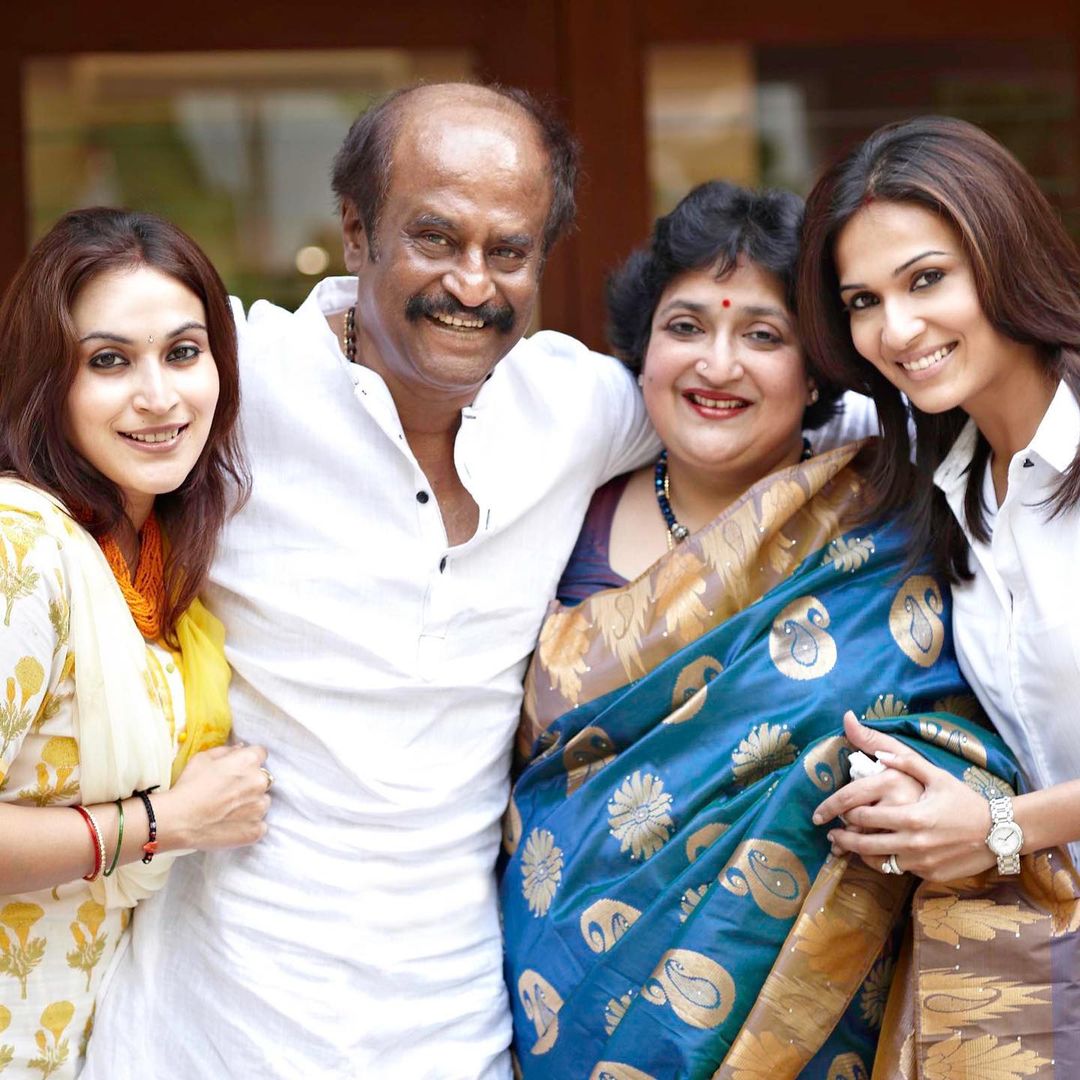
Views (Rajinikanth Biography)
Rajinikanth is a practicing Hindu and is a strong believer in spirituality. He is also a practitioner of yoga and meditation. Rajinikanth has religiously visited major Hindu temples prior to the release of each of his films; for instance, he visited the Tirumala Venkateswara Temple before the release of Sivaji in 2007 and visited Sathya Sai Baba at Prasanthi Nilayam in Andhra Pradesh before the release of Kuselan the following year. He also occasionally leaves for pilgrimage to the Himalayas.
He has often referred to Ramakrishna Paramahamsa, Swami Satchidananda, Raghavendra Swami, Mahavatar Babaji, and Ramana Maharshi as his favorite spiritual leaders.
Philanthropy (Rajinikanth Biography)
According to Naman Ramachandran, the author of Rajinikanth: The Definitive Biography, most of Rajinikanth’s philanthropic activities went unpublicized because he chose to keep them undisclosed. In the 1980s, when superstitious beliefs in Tamil Nadu created a stigma towards eye donation, Rajinikanth took the case of campaigning in support of corneal transplantation via television and public speeches. In 2011, Rajinikanth announced his support for the anti-corruption movement led by Anna Hazare and offered his commercial wedding venue, the Raghavendra Kalyana Mandapam, in Chennai free of cost for the India Against Corruption members to hold their fast. He also provided lodging in the venue for sanitary workers hired to clean up after the 2015 South India floods. Rajinikanth’s fan associations regularly organize blood donation and eye donation camps and distribute food during his birthday.
Money lending allegation (Rajinikanth Biography)
Rajinikanth declared ₹6.11 million (equivalent to ₹22 million or US$280,000 in 2023), ₹17 million (equivalent to ₹60 million or US$750,000 in 2023), and ₹3.39 million (equivalent to ₹11 million or US$140,000 in 2023) as earnings for the years 2002–2003, 2003–2004 and 2004–2005, respectively. However, the Income Tax Department observed that he had claimed a considerable sum of professional expenses and thus carried out a survey in 2005 at his residence at Poes Garden. During the survey, the IT Department found out that he had accounted for a loss of costs as his professional costs and it was also discovered that not even one-tenth of the residential property was allocated to professional purposes. Moreover, when Rajinikanth was questioned by the I-T department if he was in the money lending business, he initially denied it. Later, though, he admitted to the IT Department that he was indeed a money lender and that he had loaned money as a source of profit at an interest rate of 18 percent. Later, for all three years in dispute, Rajinikanth was forced to submit revised reports, confessing he had earned more than what was reported in the initial report on 14 February 2005. But the I-T department penalized him ₹6.6 million (equivalent to ₹7.7 million or US$97,000 in 2023) since he filed revised returns only after they surveyed him.
This was challenged by Rajinikanth and his lawyers, and in January 2020 the I-T department wrote off the fine, due to its recent decision to withdraw from appeals in cases below ₹10 million (equivalent to ₹12 million or US$150,000 in 2023). The news that Rajinikanth told the Income Tax department that he was lending money at an 18 percent interest rate has earned outrage and criticism for his high-interest rate loans, which is a big problem in Tamil Nadu.
Filmography (Rajinikanth Biography)
| † | Denotes films that have not yet been released |
| Year | Film | Role(s) | Language(s) | Notes |
|---|---|---|---|---|
| 1975 | Apoorva Raagangal | Pandiyan | Tamil | |
| 1976 | Katha Sangama | Kondaji | Kannada | |
| Anthuleni Katha | Murthy | Telugu | ||
| Moondru Mudichu | Prasad | Tamil | ||
| Baalu Jenu | Vasu | Kannada | ||
| 1977 | Avargal | Ramanathan | Tamil | |
| Kavikkuyil | Murugan | |||
| Raghupathi Raghavan Rajaram | Veeraiyan | |||
| Chilakamma Cheppindi | Ravi | Telugu | ||
| Bhuvana Oru Kelvi Kuri | Sampath | Tamil | ||
| Ondu Premada Kathe | Local school chairman | Kannada | ||
| 16 Vayathinile | Parattai | Tamil | ||
| Sahodarara Savaal | Shekhar | Kannada | ||
| Aadu Puli Attam | Rajini | Tamil | ||
| Gayathri | Rajarathnam | |||
| Kumkuma Rakshe | Murali | Kannada | ||
| Aaru Pushpangal | Ravi | Tamil | ||
| Tholireyi Gadichindi | Chitti Babu | Telugu | ||
| Aame Katha | – | Guest appearance | ||
| Galate Samsara | Sundar | Kannada | ||
| 1978 | Shankar Salim Simon | Simon | Tamil | |
| Kiladi Kittu | Srikanth | Kannada | ||
| Annadammula Savaal | Rangababu | Telugu | ||
| Aayiram Jenmangal | Ramesh | Tamil | ||
| Maathu Tappada Maga | Chandru | Kannada | ||
| Mangudi Minor | Kumar | Tamil | ||
| Bairavi | Mookaiah | |||
| Ilamai Oonjal Aadukirathu | Murali | |||
| Sadhurangam | Sundaresan | |||
| Vanakkatukuriya Kathaliye | Joe | |||
| Vayasu Pilichindi | Murali | Telugu | ||
| Mullum Malarum | Kaali | Tamil | Tamil Nadu State Film Award Special Prize | |
| Iraivan Kodutha Varam | Rajnikanth | |||
| Thappida Thala | Devu | Kannada | ||
| Thappu Thalangal | Deva | Tamil | ||
| Aval Appadithan | Thyagu | |||
| Thai Meethu Sathiyam | Babu | |||
| En Kelvikku Enna Bathil | Saravana | |||
| Paavathin Sambalam | Himself | Guest appearance | ||
| Justice Gopinath | Ravi | |||
| Priya | Ganesh | Tamil | Bilingual film | |
| Kannada | ||||
| 1979 | Kuppathu Raja | Raja | Tamil | |
| Iddaru Asadhyule | Bhaskar | Telugu | ||
| Allauddinum Albhutha Vilakkum | Kamruddin | Malayalam | Bilingual film | |
| Allaudinaum Arputha Vilakkum | Tamil | |||
| Ninaithale Inikkum | Deepak | Tamil | Bilingual film | |
| Andamaina Anubhavam | Dilip | Telugu | ||
| Thaayillamal Naan Illai | Bichwa Bakri | Tamil | Guest appearance | |
| Dharma Yuddham | Vijay | |||
| Naan Vazhavaippen | Michael D’Souza | |||
| Tiger | Rashid | Telugu | ||
| Aarilirunthu Arubathu Varai | Santhanam | Tamil | ||
| Annai Oru Aalayam | Vijay | Tamil | Bilingual film | |
| Amma Evarikkaina Amma | Telugu | |||
| 1980 | Billa | David Billa, Rajappa | Tamil | |
| Natchathiram | Himself | Guest appearance | ||
| Ram Robert Rahim | Inspector Ram | Telugu | ||
| Anbukku Naan Adimai | Gopinath | Tamil | ||
| Kaali | Kaali | Tamil | Bilingual film | |
| Telugu | ||||
| Mayadari Krishnudu | Krishnudu | Telugu | ||
| Naan Potta Savaal | Ramu (Shiva) | Tamil | ||
| Johnny | Johnny, Vidyasagar | |||
| Ellam Un Kairasi | Raja | |||
| Polladhavan | Manohar | |||
| Murattu Kaalai | Kaalaiyan | |||
| 1981 | Thee | Rajashekar | ||
| Kazhugu | Raja | |||
| Thillu Mullu | Chandran (Indiran) | |||
| Garjanai | Vijay | Tamil | Trilingual film | |
| Garjanam | Malayalam | |||
| Garjane | Kannada | |||
| Netrikkan | Chakravarthi, Santhosh | Tamil | ||
| Ranuva Veeran | Raghu | |||
| 1982 | Pokkiri Raja | Ramesh, Raja | ||
| Thanikattu Raja | Suryaprakash | |||
| Ranga | Ranganathan | |||
| Puthukavithai | Anand | |||
| Nandri, Meendum Varuga | Himself | Guest appearance | ||
| Enkeyo Ketta Kural | Kumaran | |||
| Moondru Mugam | SP Alex Pandian, Arun, John | Tamil Nadu State Film Award Special Prize | ||
| Agni Sakshi | Himself | Guest appearance | ||
| 1983 | Paayum Puli | Bharani | ||
| Uruvangal Maralam | Himself (Raghavendrar) | Guest appearance | ||
| Thudikkum Karangal | Gopi | |||
| Andhaa Kaanoon | Vijay Kumar Singh | Hindi | ||
| Thai Veedu | Raju | Tamil | ||
| Sivappu Sooriyan | Vijay | |||
| Jeet Hamaari | Raju | Hindi | ||
| Adutha Varisu | Kannan | Tamil | ||
| Thanga Magan | Arun | |||
| 1984 | Meri Adalat | Inspector Ashok | Hindi | |
| Naan Mahan Alla | Vishwanath | Tamil | ||
| Thambikku Entha Ooru | Balu | |||
| Kai Kodukkum Kai | Kaalimuthu | |||
| Idhe Naa Savaal | Ramu (Shiva) | Telugu | ||
| Anbulla Rajinikanth | Himself | Tamil | ||
| Gangvaa | Gangvaa | Hindi | ||
| Nallavanukku Nallavan | Manikkam | Tamil | Filmfare Award for Best Actor – Tamil | |
| John Jani Janardhan | John Mendez / Janardhan Gupta / Jani | Hindi | ||
| 1985 | Nyayam Meere Cheppali | Aathmaram | Telugu | Guest appearance |
| Naan Sigappu Manithan | Vijay | Tamil | ||
| Mahaguru | Vijay “Mahaguru” | Hindi | ||
| Un Kannil Neer Vazhinthal… | Ravi | Tamil | ||
| Wafadaar | Ranga | Hindi | ||
| Sri Raghavendrar | Sri Raghavendrar | Tamil | ||
| Geraftaar | Inspector Hussain | Hindi | Cameo | |
| Yaar? | Himself | Tamil | Guest appearance | |
| Bewafai | Ranveer | Hindi | ||
| Padikkadavan | Rajendran | Tamil | ||
| 1986 | Mr. Bharath | Bharath | ||
| Naan Adimai Illai | Vijay | |||
| Jeevana Poratam | Ravi | Telugu | ||
| Viduthalai | Raja | Tamil | ||
| Bhagwaan Dada | Bhagwan Dada | Hindi | ||
| Kodai Mazhai | Himself | Tamil | Guest appearance | |
| Asli Naqli | Birju Ustad | Hindi | ||
| Dosti Dushmani | Ranjeet | |||
| Maaveeran | Raja (Maaveeran) | Tamil | Also co-producer | |
| 1987 | Daku Hasina | Mangal Singh | Hindi | Cameo |
| Velaikaran | Raghupathi | Tamil | ||
| Insaaf Kaun Karega | Vikram Singh | Hindi | ||
| Oorkavalan | Kangeyan | Tamil | ||
| Manithan | Raja | |||
| Manathil Urudhi Vendum | Himself | Guest appearance | ||
| Uttar Dakshin | Shankar | Hindi | ||
| 1988 | Tamacha | Vikram Pratap Singh | ||
| Guru Sishyan | Raja (Guru) | Tamil | ||
| Dharmathin Thalaivan | Balasubramanian, Shankar | |||
| Bloodstone | Shyam Sabu | English | ||
| Kodi Parakkuthu | DCP Erode Shivagiri (Dhadha) | Tamil | ||
| 1989 | Rajadhi Raja | Rajashekar, Chinnarasu | Tamil | |
| Gair Kanooni | Adam Khan, Azam Khan | Hindi | Special appearance | |
| Siva | Siva (Tiger) | Tamil | ||
| Raja Chinna Roja | Raja (Kumar) | |||
| Mappillai | Aarumugam | |||
| Bhrashtachar | Abdul Sattar | Hindi | Cameo | |
| ChaalBaaz | Jackie Pandyekar (Jaggu) | |||
| 1990 | Panakkaran | Muthu | Tamil | |
| Periya Idathu Pillai | Himself | Guest appearance | ||
| Athisaya Piravi | Kaalai, Balu | |||
| 1991 | Dharma Durai | Dharma Durai | ||
| Hum | Inspector Kumar Malhotra | Hindi | ||
| Farishtay | Arjun Thange | |||
| Khoon Ka Karz | Kishan | |||
| Phool Bane Angaray | Ranjeet Singh | |||
| Nattukku Oru Nallavan | Inspector Subhash | Tamil | Bilingual film | |
| Shanti Kranti | Hindi | |||
| Thalapathi | Surya | Tamil | ||
| 1992 | Mannan | Krishnan | Also playback singer | |
| Tyagi | Shankar G. “Dadhu” Dayal | Hindi | ||
| Annaamalai | Annaamalai | Tamil | ||
| Pandian | Pandian IPS | |||
| 1993 | Insaniyat Ke Devta | Anwar | Hindi | |
| Yajaman | Kanthavelu Vaanavarayan | Tamil | ||
| Uzhaippali | Thamizharasan (Tamilazhagan) | |||
| Valli | Veeraiyan | Extended Cameo Also producer and screenwriter |
||
| 1994 | Veera | Muthuveerappan | ||
| 1995 | Baashha | Manikkam (Manik Baashha) | ||
| Pedarayudu | Paparayudu | Telugu | Cameo | |
| Aatank Hi Aatank | Munna | Hindi | ||
| Muthu | Muthu, Zamindar | Tamil | Tamil Nadu State Film Award for Best Actor | |
| Bhagya Debata | Singer | Bengali | Guest appearance | |
| 1997 | Arunachalam | Arunachalam, Vedachalam | Tamil | |
| 1999 | Padayappa | Aarupadayappan | Tamil Nadu State Film Award for Best Actor | |
| 2000 | Bulandi | Ghajraj Thakur | Hindi | Cameo |
| 2002 | Baba | Baba, Mahavatar Babaji (Voice-Over) | Tamil | Also producer and screenwriter |
| 2005 | Chandramukhi | Dr Saravanan, Vettaiyan Raja | Tamil Nadu State Film Award for Best Actor | |
| 2007 | Sivaji: The Boss | Sivaji Arumugam (M. G. Ravichandran) | Tamil Nadu State Film Award for Best Actor Nominated—Filmfare Award for Best Actor – Tamil |
|
| 2008 | Kuselan | Ashok Kumar | Tamil | Extended cameo Bilingual film |
| Kathanayakudu | Telugu | |||
| 2010 | Enthiran | Vaseegaran, Chitti | Tamil | Nominated—Filmfare Award for Best Actor – Tamil |
| 2011 | Ra.One | Chitti (Himself) | Hindi | Cameo, computer-generated |
| 2014 | Kochadaiiyaan | Kochadaiiyaan, Ranadheeran, Senadheeran | Tamil | Also playback singer |
| Lingaa | K. Lingeswaran, Raja Lingeswaran | |||
| 2016 | Kabali | Kabaliswaran | Nominated—Filmfare Award for Best Actor – Tamil | |
| 2017 | Cinema Veeran | Narrator | Documentary | |
| 2018 | Kaala | Karikaalan | ||
| 2.0 | Vaseegaran, Chitti, Kutty | |||
| 2019 | Petta | Petta Velan (Kaali) | ||
| 2020 | Darbar | Aaditya Arunachalam | ||
| 2021 | Annaatthe | Kaalaiyan (Annaatthe) | ||
| 2023 | Jailer † | Muthuvel Pandian | Post-production | |
| Lal Salaam † | Moideen Bhai | Cameo |
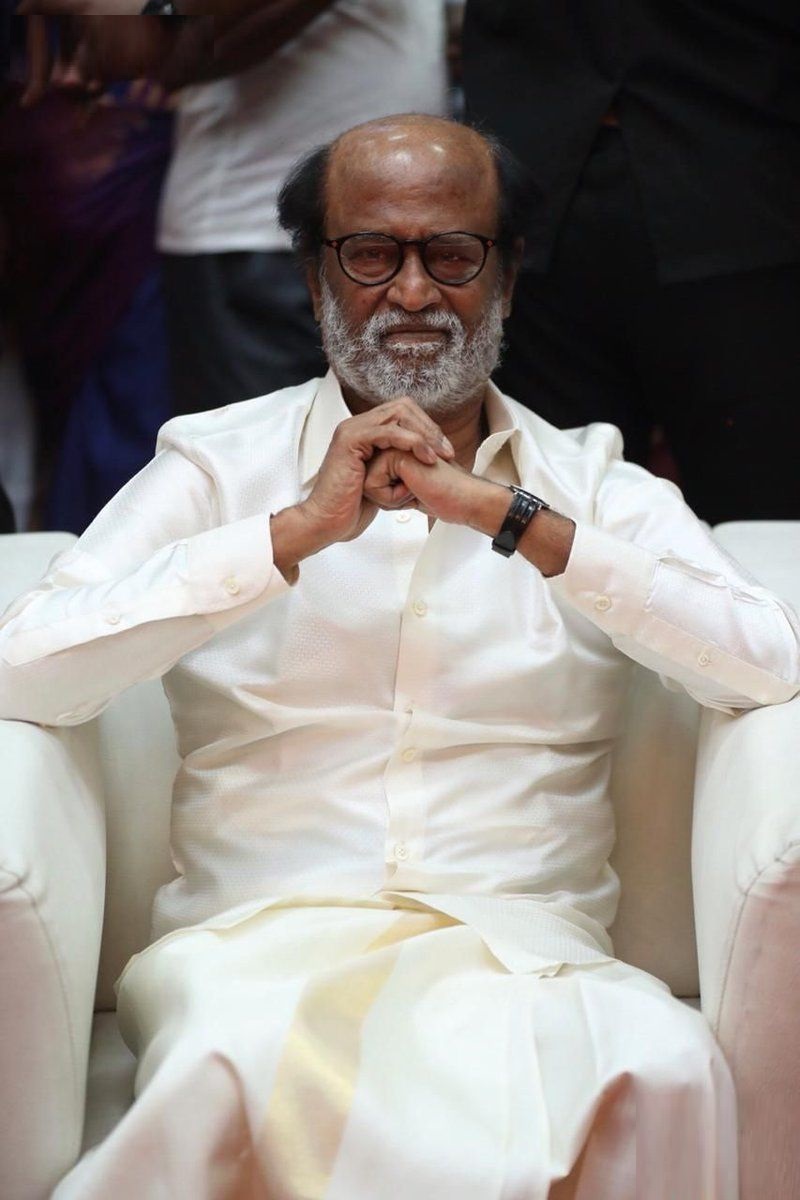
Awards, honors, and recognition (Rajinikanth Biography)
Civilian honors
| Year | Award | Honouring Body |
|---|---|---|
| 2000 | Padma Bhushan | Government of India |
| 2016 | Padma Vibhushan |
National Film Awards (Rajinikanth Biography)
| Year | Award | Honoring body |
|---|---|---|
| 2021 | Dadasaheb Phalke Award | Directorate of Film Festivals |
Tamil Nadu State Government Award
| Year | Award |
|---|---|
| 1984 | Kalaimamani – contribution to the Tamil film industry |
| 2011 | M.G.R-Sivaji Award |
Maharashtra State Film Award (Rajinikanth Biography)
| Year | Award |
|---|---|
| 2012 | Rajiv Gandhi Award |
International Film Festival of India
| Year | Award |
|---|---|
| 2014 | Indian Film Personality of the Year Award |
| 2019 | IFFI Golden Jubilee ICON Award |
Filmfans Association Awards (Rajinikanth Biography)
| Year | Film(s) | Category | Outcome |
|---|---|---|---|
| 1979 | Aarilirunthu Arubathu Varai | Best Actor | Won |
| 1982 | Enkeyo Ketta Kural | Won | |
| 1984 | Nallavanuku Nallavan | Won | |
| 1985 | Sri Raghavendra | Won | |
| 1991 | Thalapathy | Won | |
| 1992 | Annamalai | Won | |
| 1993 | Valli | Best Story Writer | Won |
| 1995 | Baashha, Muthu | Best Actor | Won |
Filmfare Awards South (Rajinikanth Biography)
Rajinikanth won the Filmfare Award for Best Actor – Tamil in 1984 with a total of eighteen nominations, his first and only win in the category.
| Year | Film(s) | Category | Outcome |
|---|---|---|---|
| 1977 | Chilakamma Cheppindi | Best Actor – Telugu | Nominated |
| 1978 | Mullum Malarum | Best Actor – Tamil | Nominated |
| 1979 | Aarilirunthu Arubathu Varai | Nominated | |
| 1980 | Johnny | Nominated | |
| 1981 | Thillu Mullu | Nominated | |
| 1982 | Moondru Mugam | Nominated | |
| 1984 | Nallavanukku Nallavan | Won | |
| 1987 | Velaikaran | Nominated | |
| 1990 | Panakkaran | Nominated | |
| 1991 | Thalapathi | Nominated | |
| 1992 | Annaamalai | Nominated | |
| 1993 | Uzhaippali | Nominated | |
| 1995 | Baashha | Nominated | |
| Muthu | Nominated | ||
| 1997 | Arunachalam | Nominated | |
| 1999 | Padayappa | Nominated | |
| 2007 | Sivaji | Nominated | |
| 2010 | Enthiran | Nominated | |
| 2016 | Kabali | Nominated |
South Screen Awards (Rajinikanth Biography)
| Year | Film | Category | Outcome |
|---|---|---|---|
| 1995 | Peddarayudu | Best Actor | Won |
Tamil Nadu State Film Awards (Rajinikanth Biography)
| Year | Film | Category | Outcome |
|---|---|---|---|
| 1978 | Mullum Malarum | Special Award | Won |
| 1982 | Moondru Mugam | Won | |
| 1989 | — | Honorary Award – M.G.R Award | Won |
| 1995 | Muthu | Best Actor | Won |
| 1999 | Padayappa | Won | |
| 2005 | Chandramukhi | Won | |
| 2007 | Sivaji | Won |
Vijay Awards (Rajinikanth Biography)
| Year | Film | Category | Outcome |
|---|---|---|---|
| 2008 | Sivaji | Favorite Hero | Won |
| 2011 | Lifetime Achievement Award | Chevalier Sivaji Ganesan Award Ganesan Award for Excellence in Indian Cinema | Won |
| 2012 | Enthiran | Favorite Hero | Won |
| 2015 | Lingaa | Favorite Hero | Won |



